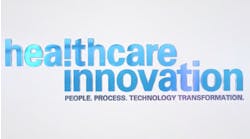Digital health funding surpassed $1 billion across a total of 71 deals in Q1 2017, according to the most recent analysis from San Francisco-based Rock Health.
“Despite any regulatory uncertainty, it’s business as usual for digital health funding,” Rock Health said in a blog post this week. For its analysis, Rock Health reports only U.S.-based digital health deals of $2 million or more, and does not include biotech/diagnostic companies or software companies that aren’t solely focused on healthcare.
Five deals over $50 million were announced in Q1. Investors in these growth rounds were a mix of institutional VCs (venture capitalists, KPCB, General Catalyst), corporate VCs (McKesson Ventures, Salesforce Ventures), and growth capital (Warburg Pincus, Goldman Sachs). The companies behind the five largest deals have various users, but not a single product charges the healthcare consumer. PatientsLikeMe, a patient community, monetizes by selling de-identifiable patient data to partner companies. Livongo Health, a B2B2C diabetes management platform, sells only to health plans and employers and not directly to the end user, Rock Health explained in its analysis.
Nearly half of the deals in Q1 fell into six categories: big data/analytics; care coordination; telemedicine; healthcare consumer engagement; hospital administration; and wearables and biosensing. To this point, going forward, healthcare leaders indicate that they will focus on controlling costs, investing in analytics to improve data integration, and increasing patient engagement and utilization of telemedicine, according to the report.
Two noteworthy M&A deals include CoverMyMeds being acquired by McKesson for a $1.1 billion in cash, plus an additional $275 million contingent upon CoverMyMeds’ meeting financial performance goals ending fiscal year 2019. This would make it the fourth largest digital health acquisition on record at nearly $1.4 billion, according to the report. Also, Castlight Health acquired employee wellness platform Jiff for all-stock consideration of up to $135 million.
The report further stated that with more than 20 private digital health companies that have raised over $100 million since 2011, more exits are likely in the pipeline.
What’s more, although it was a strong quarter for the public markets overall, with the S&P 500 and Dow up 5.77 percent and 4.89 percent, respectively, no stock dropped this quarter as drastically as NantHealth, founded and led by physician billionaire Dr. Patrick Soon-Shiong. “That stock price fell nearly 50 percent this quarter, after a STAT news article exposed questionable charitable giving used to bolster NantHealth’s topline,” according to the report.
So far, 2017 digital health funding is shaping up to be on track with previous years (49 percent above Q1 2015 and 23 percent below Q1 2016). “We hear that providers and health plans are delaying expenditures based on uncertainty, yet founders remain cautiously optimistic and feel well positioned for what comes next,” the report concluded.

